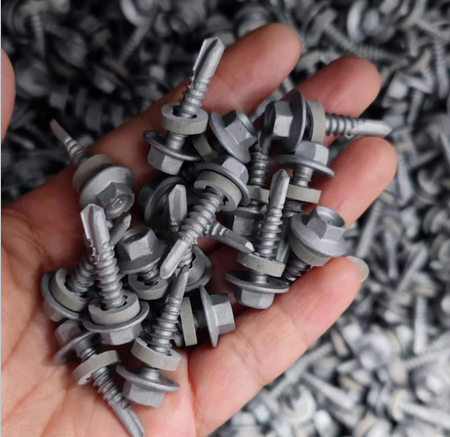Ordering Products for Bolt Flat Washers and Lock Washers in Various Sizes and Materials
Understanding Bolt Flat Washers and Lock Washers An Essential Guide to Ordering Products
When it comes to fastening solutions in various applications, bolts are among the most utilized components. To ensure the reliability and durability of bolt assembly, the use of washers becomes indispensable. Among the types of washers, flat washers and lock washers play crucial roles in maintaining the integrity of bolted connections. This article aims to delve into the characteristics, applications, and ordering considerations for bolt flat washers and lock washers.
The Role of Washers
Washers serve multiple purposes in an assembly. Primarily, they distribute the load of a fastener, protect surfaces from damage, and prevent loosening due to vibration. Understanding the specific functions of flat washers and lock washers is essential for selecting the right type for your project.
Flat Washers
Flat washers are circular plates with a hole in the center that are placed under the head of a bolt or nut
. Their primary function is to distribute the load evenly across the surface and prevent damage to the workpiece. They are available in various sizes, materials, and thicknesses, making them versatile for different applications.- Materials Flat washers can be made from materials such as steel, stainless steel, plastic, or rubber. The choice of material depends on factors such as environmental conditions, load-bearing requirements, and corrosion resistance. - Applications Commonly used in construction, automotive, and machinery assembly, flat washers are essential in leveling surfaces and providing a stable foundation for a bolt or nut.
Lock Washers
bolt flat washer lock washer order products

Lock washers are designed specifically to prevent fasteners from loosening due to vibration or movement. They come in various styles, including split lock washers, toothed lock washers, and wave washers. Each type provides a different method of securing the fastener.
- Split Lock Washers These are the most common type, featuring a split design that exerts a spring effect upon tightening. This helps maintain tension and prevents the bolt from loosening. - Toothed Lock Washers These washers have teeth that bite into the material, providing a greater grip and preventing movement. They are particularly useful in high-vibration applications. - Wave Washers This type works similarly to a spring, providing a small amount of flex to absorb shock and vibration, making them ideal for less stable setups.
Ordering Considerations
When ordering bolt flat washers and lock washers, several factors should be taken into account
1. Size It is crucial to select washers that match the size of the bolts or nuts being used. Consider both the inner diameter (the hole size) and the outer diameter to ensure compatibility. 2. Thickness The thickness of a washer can significantly impact its load-bearing capabilities. When selecting washers, ensure they are thick enough to handle the expected load without compressing excessively. 3. Material Choose a material that suits your specific application. For outdoor or corrosive environments, stainless steel or coated options may be necessary to prevent rust and deterioration. 4. Quantity Determine how many washers you’ll need based on the number of fasteners in your project. Ordering in bulk can sometimes lead to cost savings.
5. Standards and Compliance Be aware of any industry standards or regulations that apply to your project, as these may dictate the types of washers you can use.
Conclusion
Bolt flat washers and lock washers are critical components in ensuring the stability and reliability of bolted connections across various applications. By understanding their roles and the factors influencing your ordering decisions, you can enhance your assembly's performance and longevity. Always ensure you choose the correct type, size, and material to suit your specific needs, resulting in efficient and effective fastening solutions. Whether for construction, automotive, or low-tech applications, the right choice of washers is integral to success.
-
Top Choices for Plasterboard FixingNewsDec.26,2024
-
The Versatility of Specialty WashersNewsDec.26,2024
-
Secure Your ProjectsNewsDec.26,2024
-
Essential Screws for Chipboard Flooring ProjectsNewsDec.26,2024
-
Choosing the Right Drywall ScrewsNewsDec.26,2024
-
Black Phosphate Screws for Superior PerformanceNewsDec.26,2024
-
The Versatile Choice of Nylon Flat Washers for Your NeedsNewsDec.18,2024










